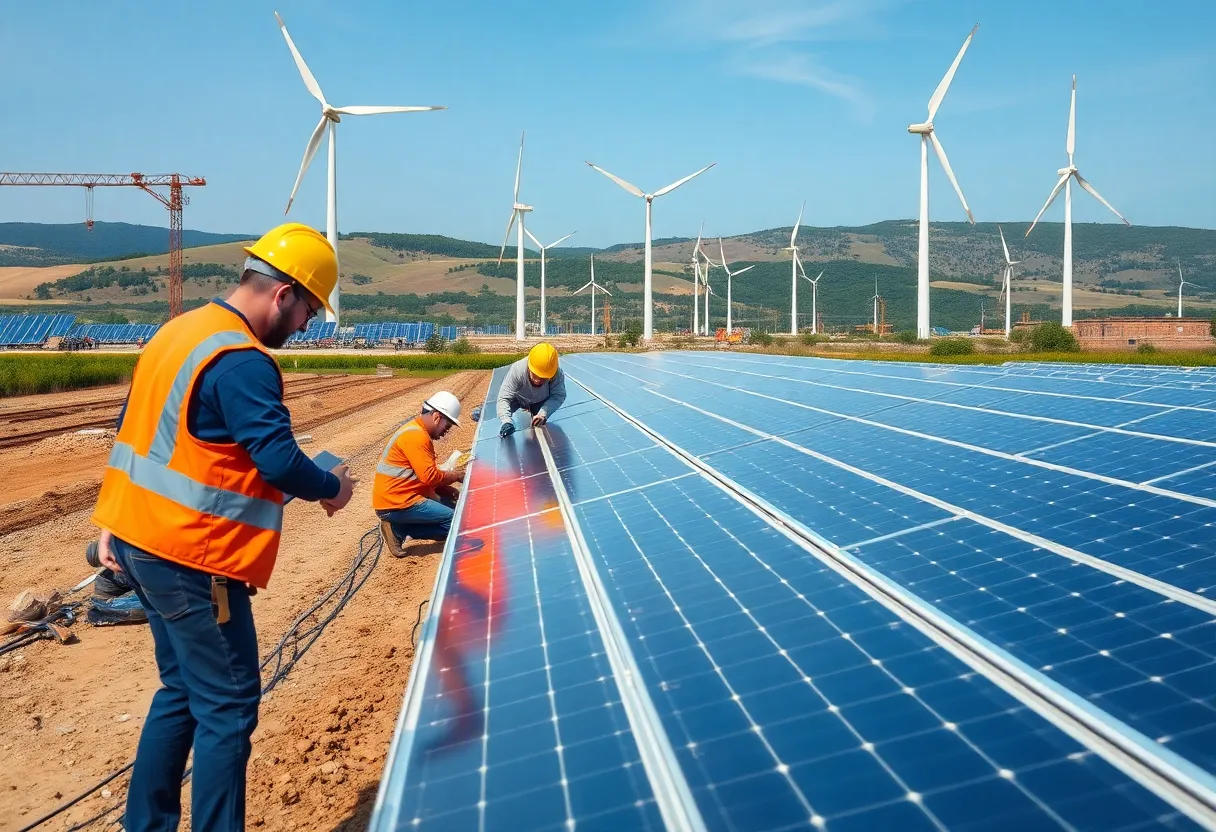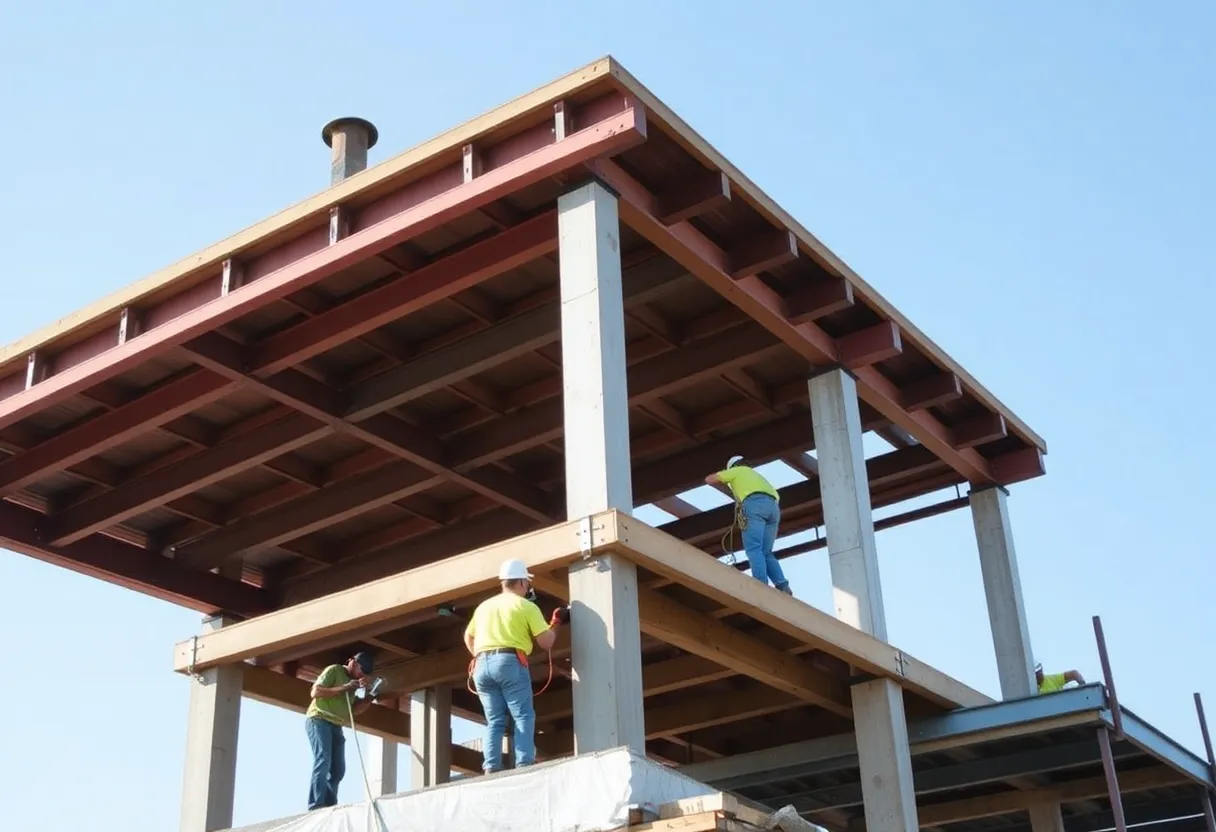News Summary
The begin-construction date is vital for projects receiving clean energy tax incentives. Taxpayers need to demonstrate compliance with the physical work test or the 5% safe harbor test to qualify for these tax credits. Significant physical work is essential, along with meticulous documentation of incurred costs. The current landscape of renewable energy incentives remains uncertain, making it crucial for stakeholders to stay informed and prepared to maximize potential savings.
Understanding Begin-Construction Tests for Renewable Energy Tax Credits
The begin-construction date serves as a crucial determinant for projects benefiting from clean energy tax incentives. Establishing this date is essential for qualifying for tax credits, as it sets the standards regarding eligibility and the value of credits that may be claimed. Taxpayers must navigate two primary methods to verify their begin-construction date: the physical work test and the 5% safe harbor test.
Importance of Proving Begin-Construction Date
For taxpayers pursuing benefits under Sections 45, 48, 45Y, and 48E of the Internal Revenue Code, demonstrating compliance with these tests is of utmost importance. Successfully meeting either the physical work test or the 5% safe harbor test is essential to establish the required begin-construction date essential for claiming tax credits.
Physical Work Test Explained
The physical work test primarily assesses whether significant physical work has commenced on a renewable energy project. However, eligibility does not rely solely on the amount of money spent but rather on the nature of the work undertaken. Projects must go beyond preliminary activities like planning, design, or securing permits to meet the criteria for significant physical work.
Eligible activities might include excavation, setting anchor bolts, and installing racks for solar panels. Additionally, if any physical work is conducted offsite, it could qualify as long as it includes specialized components manufactured under a binding contract. On the contrary, manufacturing components that are merely held in inventory does not meet the requirements of the physical work test.
5% Safe Harbor Test Clarified
The 5% safe harbor test necessitates taxpayers to incur at least 5% of the total cost of the energy property. Not all costs are applicable for consideration under this test; for instance, intangible assets like power purchase agreements do not count. Furthermore, while soft costs such as developer fees may appear risky to claim under the 5% test, they could potentially be included if they are directly tied to energy property.
Documentation is Key
Meticulous documentation is critical for those looking to validate their eligibility for these tests. Taxpayers are encouraged to maintain well-defined contractual terms and substantial records to support their claims. This documentation should encompass purchase orders and bills of lading to ensure all incurred costs are duly substantiated.
Accrual Basis Taxpayers
For taxpayers following the accrual basis, it is essential to take title of assets within three and a half months of incurring costs to meet the criteria outlined in the 5% test. This timeline emphasizes the need for efficient planning and execution to ensure compliance.
Shifting Landscape of Renewable Energy Incentives
As the landscape of renewable energy incentives evolves, ongoing legislative discussions are likely to have a significant impact on tax credits. Currently, there are no indications that new regulations regarding the begin-construction criteria will be introduced in forthcoming tax legislation. However, a general sense of uncertainty surrounds future eligibility deadlines for clean energy tax credits, prompting many stakeholders to stay informed and prepared.
Being knowledgeable about the begin-construction date, and the associated tests and conditions can substantially benefit taxpayers aiming to take advantage of the tax incentives available for renewable energy projects. The evolving structure and regulations necessitate vigilance and proactive measures to ensure compliance and maximize potential savings.
Deeper Dive: News & Info About This Topic
Additional Resources
- AP News: Clean Energy and the Big Beautiful Bill
- Wikipedia: Renewable Energy
- New York Times: Trump’s Clean Energy Bill
- Google Search: Clean Energy Tax Credits
- Politico: Senate Bill for Wind and Solar
- Encyclopedia Britannica: Solar Energy
- CNBC: Solar and Wind Energy Tax Credits
- Google News: Renewable Energy Policy
- Wall Street Journal: Winners and Losers in Renewable Energy
- Encyclopedia Britannica: Wind Energy
- Reuters: Senate Bill Clean Energy Cuts
- Google Scholar: Renewable Energy Incentives
Author: Construction FL News
The FLORIDA STAFF WRITER represents the experienced team at constructionflnews.com, your go-to source for actionable local news and information in Florida and beyond. Specializing in "news you can use," we cover essential topics like product reviews for personal and business needs, local business directories, politics, real estate trends, neighborhood insights, and state news affecting the area—with deep expertise drawn from years of dedicated reporting and strong community input, including local press releases and business updates. We deliver top reporting on high-value events such as the Florida Build Expo, major infrastructure projects, and advancements in construction technology showcases. Our coverage extends to key organizations like the Associated Builders and Contractors of Florida and the Florida Home Builders Association, plus leading businesses in construction and legal services that power the local economy such as CMiC Global and Shutts & Bowen LLP. As part of the broader network, including constructioncanews.com, constructionnynews.com, and constructiontxnews.com, we provide comprehensive, credible insights into the dynamic construction landscape across multiple states.





